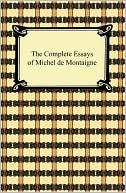More on this book
Community
Kindle Notes & Highlights
Gradually Montaigne realized that by studying and questioning the greater and lesser authors in the light of his own opinions and experience he was studying himself.
He was acutely aware that when doing so he was not gazing at a solid, stationary object, an evidently unified Ego, but at something ever-changing, ever-flowing.
No virtue or no vice known to any individual human who remains sane should be totally incomprehensible to any other.
Philosophy worked with its own tools: reason and experience; its domain was natural knowledge; such revelation as it enjoyed – if such revelation there be – was that kind which worked upon inspired poets, doctors, lawgivers, scientists and sages. But especially when philosophy ventured beyond physics into metaphysics it was not teaching but speculating: the ‘essence’ of being, truth and knowledge, is beyond reason and beyond experience. But we can enjoy hunting about for it.
It was a sound theologian, Bishop Wescott, who said, ‘No formula which expresses clearly the thought of one generation can convey the same meaning to the generation which follows.’
Christian rapture is a great thing. Yet only a tiny handful of the Elect – only privileged ascetic contemplatives touched by grace – can safely neglect their bodies’ transitory necessities while their souls feed by anticipation on lasting heavenly food. For ordinary folk to strive to ape them leads to madness: for madness, too, consists in the pulling apart of soul and body. Since Platonic times there was thought to be a hierarchy of souls within creation. Above the human souls were classed the souls of angels; below the human souls were classed the souls of beasts. But, concludes Montaigne,
...more


